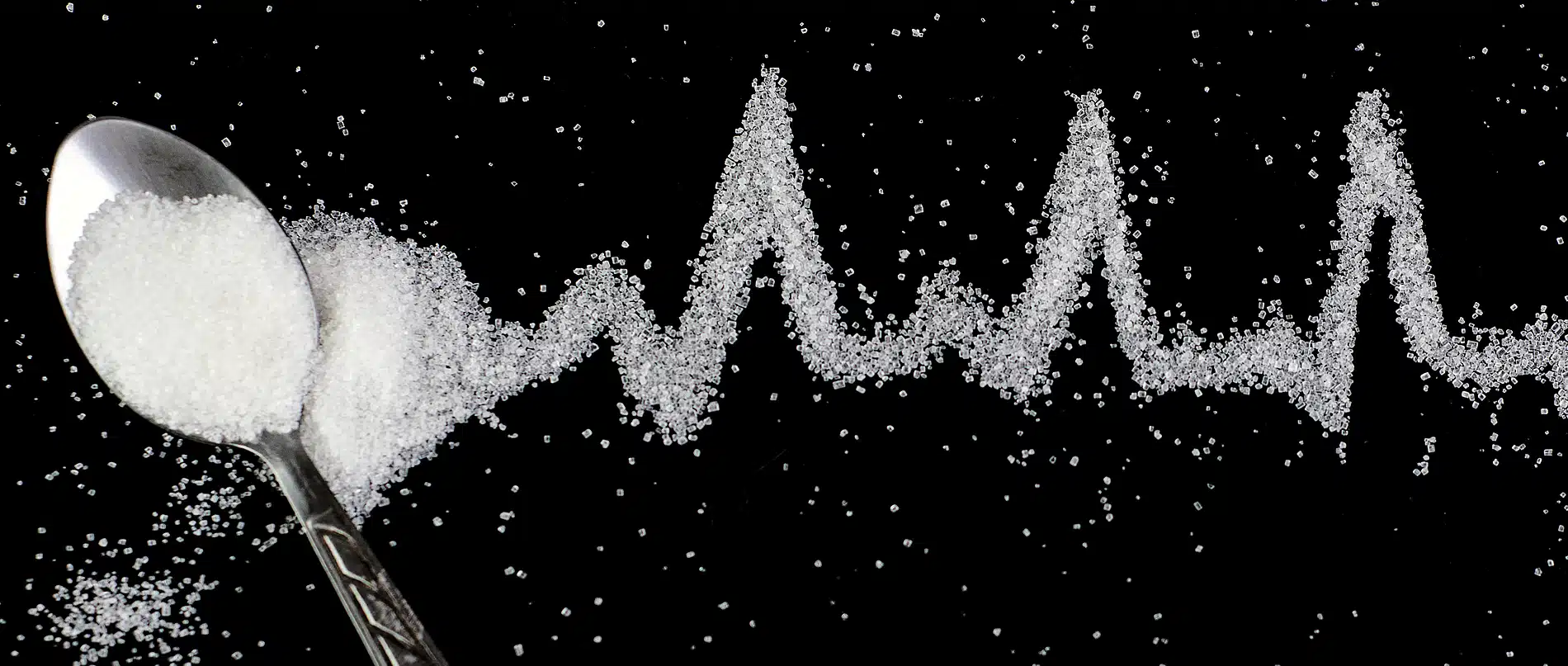Specific Health Topics
Blood Sugar
Keeping Your Body’s Main Fuel Source, Blood Sugar, at a Healthy Level

Blood sugar (glucose) is the body’s main fuel, with the brain claiming a hefty 20% for itself. That’s why low blood sugar can leave you feeling exhausted, anxious, irritable and brain fogged.
High blood sugar doesn’t do you any favors, either. It punishes the blood vessels in your body — from wide arteries to the tiny, cell-wide capillaries. The result is increased increased risk of heart attack, stroke, kidney disease, nerve pain, blindness, foot ulcers that won’t heal, and amputations.
Unfortunately, we Americans eat a lot of glucose-raising sugar, with an astounding average of 150 pounds of food-processed sugar added to a person’s diet every year.
The result? Some experts predict that by 2020 half of Americans will be either prediabetic or diabetic! But you don’t have to be part of that half…
The message to take from this is that to feel well and stay healthy, you have to keep your blood sugar at an optimal level. And a few simple actions can help you do just that!
(PS: To answer the question posed by this article’s title … Yes, chocolate is a health food, especially dark chocolate. It promotes a healthy heart, improves energy, and is chock-full of antioxidants. Enjoy it in moderation — remember, chocolate is not low-cal.)
If You Have Symptoms of Low Blood Sugar
The main signs of frequent low blood sugar levels are:
- Fatigue
- Irritability when you’re hungry (What I call “Feed me or I’ll kill you!” syndrome)
- “Crashing” when under stress
- Sugar craving
If that sounds like you, you may need support for your adrenal glands, as they play a key role in keeping blood sugar levels steady. Easy ways to promote healthy adrenals include:
- Take the herbal formula Adrenal Stress End.
- Increase your intake of fiber. Start by increasing veggies and switching from white flour whole grains.
- Increase your protein intake.
- Consider eating small, frequent meals throughout the day.
- And most importantly, cut out sweets (except for chocolate — in moderation).
If Your Blood Sugar Levels Are High
Check your lifestyle. A few simple lifestyle changes can make all the difference in controlling high blood sugar. These include:
Lose Weight
The simplest way is to eat a diet that emphasizes filling, low-calorie foods, like vegetables, fruits, beans, fish and chicken. Cut out sugars and starches (e.g., any wheat or rice products) and you’ll see a major difference.
Get More Daily Sunshine
Sunshine increases levels of
vitamin D, a nutrient linked to a lower risk for diabetes.
Go for a Walk
The best way to get that sunshine is to go for
a walk, because exercise also helps balance blood sugar levels. Worried about skin cancer from sun exposure? Just follow this rule: Avoid sunburn, not sunshine.
Cut Back on Sugar
For a healthy sugar substitute, try Stevia,
a sweet-tasting herb. I like the brands Body Ecology and SweetLeaf. You can also use saccharin which, although it is a chemical, has a fairly good safety record. I don’t recommend aspartame, as some individuals experience severe reactions to it, including seizures, headaches and nausea.
Increase Your Intake of Fiber
Along with the breakfast-time
tips I just described, include more beans in your diet, and eat more fruits and vegetables.
Take a Daily Dose of Glucose-Optimizing Nutrients
They
include magnesium (200 mg), chromium (200 mcg), vitamin D (2,000 IU), vitamin C (500 mg), and vitamin K (150 mcg daily). You can find all of these nutrients in the Energy Revitalization System vitamin powder.
Sprinkle on the Cinnamon
Several studies show that
cinnamon can help control blood sugar. In the most recent, Chinese researchers found that low- and high-doses of cinnamon extract helped lower blood sugar in people with type 2 diabetes. The study was published in the June, 2012 issue of Nutrition Research. I put it on my whole-grain breakfast cereal each morning along with berries, a banana, and Stevia. Delicious!
Take a Deep Breath
Stress reduction and blood sugar
balancing go hand in hand. In fact, a recent study out of India showed that deep “diaphragmatic” breathing (breathing from your belly, rather than breathing shallowly from your chest) helped balance post-meal blood sugar and lowered levels of A1C (glycosylated hemoglobin), a measurement of long-term blood sugar control.




